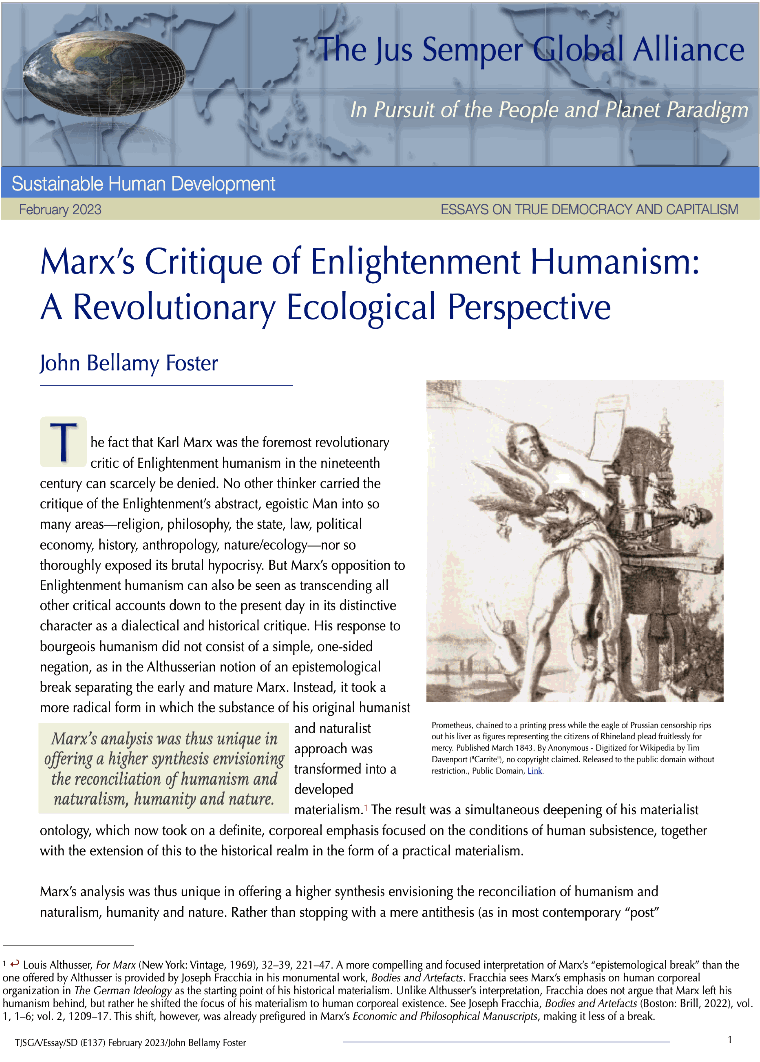John Bellamy Foster Marx’s analysis was thus unique in offering a higher synthesis envisioning the reconciliation of humanism and naturalism, humanity and nature. Rather than stopping with a mere antithesis (as in most contemporary “post” conceptions), the object was the supersession of those material conditions of the capitalist mode of production that had made Enlightenment humanism the paradigmatic form of bourgeois thought. This radical rejection of bourgeois humanism was integrated with the critique of colonialism, where capitalism was seen as walking “naked” abroad, exposing its full barbarism. In this regard, Marx’s revolutionary response to Enlightenment humanism helped inspire the later critiques by such anticolonial thinkers as W. E. B. Du Bois, Frantz Fanon, and Aimé Césaire, all of whom called for the development of a “new humanism.”3 Recent research into the ecological foundations of Marx’s thought, particularly his conception of the metabolism of humanity and nature mediated by social production, has brought out more fully the depth and complexity of Marx’s overall critique of capitalism’s alienated social metabolism. This line of investigation demonstrates that, far from being anthropocentric, or succumbing to the Enlightenment notion of the conquest of nature, his vision encompassed the wider realm of what he called “the universal metabolism of nature.” This included an appreciation of other life forms and his critique of environmental destruction in his famous theory of metabolic rift, giving rise to what can be called a revolutionary ecological perspective. Post-humanist (including so-called new-materialist) thinkers have recently sought to challenge Marx’s metabolic vision and revolutionary ecology in general by promoting a phantom-like world of “dark ecology,” hyperobjects, and vitalistic forces. However, such irrationalist views, as we shall see, invariably fail to address the fundamental criterion of the philosophy of praxis: the object is to change the world, not simply to reinterpret it.
For a full read of this brief, click here or on the picture to download the pdf file.
|

- © The Jus Semper Global Alliance
| Home |  | Resources |  | Economic Data |  | Marx’s Critique of Enlightenment Humanism: A Revolutionary Ecological Perspective |


